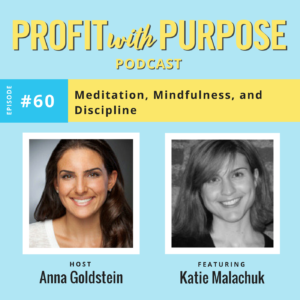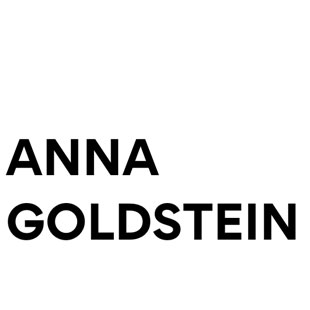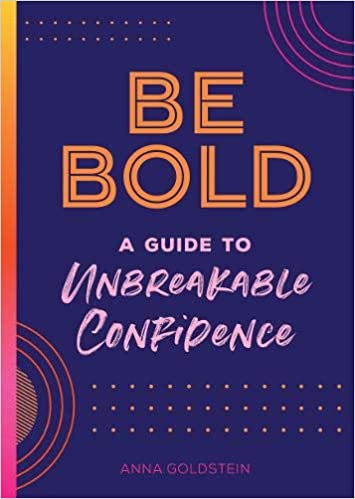Katie Malachuk is a Meditation Teacher, Mindfulness Instructor and Mind and Life Coach. She has a BA in Women’s Studies from Harvard University, an MBA from Stanford University and MDiv from Naropa University. As a child, her secret dream job was to be a guardian angel. She wanted to help people without their even knowing. Of course, this plan was thwarted by being human. As she got older, she tried to find ways to be useful via traditional roads like education, policy, and business. More and more though, as she paid attention to her own and others’ struggles, she saw the world was simply a reflection of our thoughts, attitudes, and feelings. If we want to create real change, we need to start with our minds. Accordingly, she turned her attention to yoga and meditation.

According to her, we as humans are all consumed with ourselves, and we all hold varying views about ourselves in terms of who we are. Selfishness arises from the eroded view of self-identity, making up stories about ourselves in order to make us feel better. Even the motivation behind helping others is often to further those stories to feel good, digging the hole further of being invested in ourselves. Meditation helps by defining a more fluid experience for ourselves. We start to recognize that there are things we can choose to be with and things we can choose to let go. We learn how to take in the experiences or let go of them, just like breathing in and out. And suddenly we become more open entity than before. She thinks it ironic that as we do more investigation into the self, we actually become less self-invested, and more open to the experiences of others.
Often, we hope that endeavors, like job and relationship, are going to bring us happiness, but we only end up feeling same as before. Why is that?
She thinks that it is our responsible and positive endeavor to take care of ourselves and to make a living, but most of the time we don’t feel the way we expected when we reach those goals. That feeling of boredom and anxiety is just a primal response to the uncertainty of life. We try to tackle that edgy feeling by building ourselves up, aiming for a perfect job, house or relationship. But at the same time there are shadow projects of us, such as overeating and addiction, that are destructive to us. So we have this multiple shadow sides, along with our displays of awesomeness, happening side by side. We are trapped in such dualism, and we need to stop wasting our precious time struggling to be perfect self or wallowing in poor self. Take a break and think for a minute of that edgy feeling, and it will start to settle itself. We will realize that we don’t need to do any of those things in extreme when we learn how to actually be with ourselves and be settled, and once we learn how to do that, we learn how to be with others as well.
I crave the silence, but I also end up trying to distract myself in between, like using my phone too much. Why is it so hard to just be? Is it because of that anxiety and restlessness?
She says that we tend to be in a state of restlessness partly because humans are very sensitive beings and energetically very aware and tune into each other, so the world around us proves to be very over stimulating. It takes time to learn to be, to be in a state of non-judgmental awareness, with both mind and body settled.
What’s the relationship between boredom and addictions?
She says that we hold a very narrow view when it comes to addiction, but we are all addicted in one way or the other, such as addiction to exercising or checking your phone too often. These are all well-worn strategies, habitual patterns that we have developed over time to tackle boredom because we are just afraid to just be with what is.
What were you like before meditation? How long you’ve been meditating?
She used to struggle a lot with herself. Her relationship was in turmoil, and her consulting job wasn’t that good too. The only place she would find comfort was in her yoga classes. She later became a yoga instructor, followed by practicing meditation. She now feels more comfortable being at home with herself than before. She is much more interested and open to others. She is much more comfortable with life and being alive. She now exhibits none of the patterns she repeated in the past around disordered eating, exercising and career obsession. She’s also able to employ discipline in a way that gives more freedom, like in her yoga practice, as opposed to imprisoning her, like when she used to have a strict diet and intensive exercise.
Can you talk a little bit about discipline being a path to freedom?
Every person is afraid to be bored, scared to experience that anxiety and restlessness, so it takes a tremendous amount of discipline to let ourselves to actually be with ourselves and to listen to someone else. Discipline can be applied in any number of ways, like to further beat ourselves up, to further alienate ourselves from others, to further compete or we can apply that discipline to being present, and to actually let forgoing the normal habitual thoughts or behavioral patterns that are self-destructive.
What’s the best wisdom you have ever heard?
She mentions that someone asked her teacher how to do an exorcism. Her teacher replied, “Lead a disciplined life.”
Some of our addiction patterns do feel like possession; like the urge to gossip, look up our phone, to eat, to be somewhere, to do something. That does act like possession, and applying discipline to let go of those habits brings tremendous freedom.

Search
Popular Posts
- 02 Mar 2008The Flowering of Human Consciousness 7 Comments
- 01 May 2014Using Visualization to Create What You Want 7 Comments
- 26 Mar 20133 Questions to Change Your Career 4 Comments
- 14 Mar 2014I walked on Fire! 4 Comments
- 29 May 2014How to Bust Through Your Fear 4 Comments

